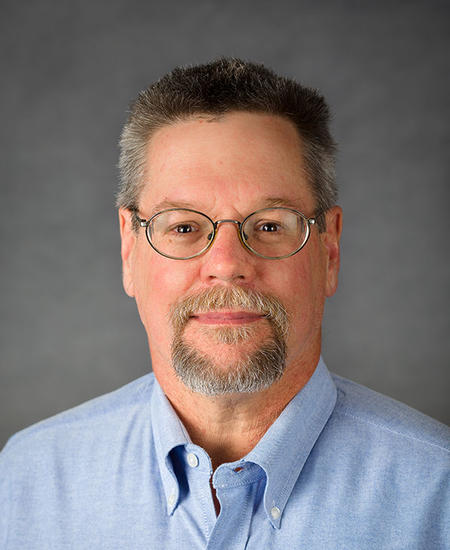by Kelly Hahn
When you hear the word “entrepreneur,” who comes to mind? Perhaps Bill Gates, Oprah Winfrey or Jeff Bezos—billionaire geniuses whose ideas never miss?
Bruce Walcott, professor in the Department of Electrical and Computer Engineering and faculty advisor to the University of Kentucky Entrepreneurs Club, wants you to think of someone else: you.
Walcott, who has taught electrical engineering courses in the University of Kentucky College of Engineering since 1987, is director of the college’s new Engineering Scholars in Entrepreneurship program. He says when it comes to successful entrepreneurs, genius is vastly overrated.
“Early in the program, we do a study of what personality traits are necessary in order to become a good entrepreneur. It turns out that being “hard working” and “persistent” is more important than being a genius.”
“Hard working” and “persistent” characterizes many of our engineering students. Does the “genius myth” discourage them from pursuing entrepreneurial endeavors? Recently, we visited with Walcott to see what other entrepreneurship myths need downsizing.
Isn’t entrepreneurship something you learn in business school? How can engineers learn to become entrepreneurs?
Yes, the Gatton College of Business & Economics does teach a course on entrepreneurship, but so does the UK College of Engineering. Being an entrepreneur doesn’t mean you know everything there is to know about business. In our program, we teach the “Business Model Canvas,” a scientific method created by Silicon Valley entrepreneur Steve Blank that uses a question-and-answer format. If you’re in our program, you won’t be writing a fifty-page business model; instead, you will make hypotheses, write a one-page business model and then go out and prove or disprove them. So I argue that the Business Model Canvas probably fits better in a science or engineering environment than in a business environment because, as engineers, we’re always doing the scientific method.
Is it possible to learn how to become an entrepreneur by sitting in a classroom?
No, not really. You can’t just say, “I got an A in this class, therefore I am an entrepreneur.” Entrepreneurship has to be practiced. That’s why our Engineering Scholars in Entrepreneurship program has a point system. In addition to completing a required course, you get points by going out and engaging in entrepreneurial activities. You might complete the Venture Studio Boot Camp led by the Von Allman Center, which is a worthwhile program for all students, but especially engineers. You could participate in Startup Weekend, a 56-hour immersive experience where you actually start a company. If
you take a co-op position with a small, high-tech startup company instead of a larger, more established company, we give you points for that because in a smaller company you can see under the hood in a way you can’t at bigger companies. You can submit a UK intellectual property disclosure. There are over a dozen options. The emphasis is on getting out there and trying.
Do I have to have a guaranteed money-making idea already in mind in order to apply?
Definitely not. In fact, I encourage students not to pitch an idea they love. I like to say, “don’t pitch your baby.” Why? Because someone might call your baby ugly, and that could hurt your feelings. If you’re serious about an idea, you want to form a group of people around you who didn’t simply sign up for a class or a program. That said, if you are in the program, you will pitch something during the first week and then learn how to “pivot”—adjust your idea based on feedback from your customer segment.
Ok, Dr. Walcott, time for you to make your pitch: Why should an engineering student become a Scholar in Entrepreneurship?
I have been encouraging entrepreneurship among our students for quite a while, whether in their student organizations or starting their own companies. But that doesn’t mean everyone in this program will launch a company. I consider it a success if the seed of entrepreneurship is planted. Who knows when it will grow? You might be working at a large company one day, dissatisfied with what you’re doing or the company environment. If you’ve been in our program, you can say, “I am going to start my own company. I’ve learned how to do this. I can hone my skills.” To me, that makes the program worthwhile. In the end, entrepreneurship is a way of thinking and doing. You don’t have to start the next Google to be a success.
Students can apply to the program now, and classes begin this fall. For more information, visit http://www.engr.uky.edu/students/undergraduate/academic-enhancements/engineering-scholars-programs/engineering-scholars.
